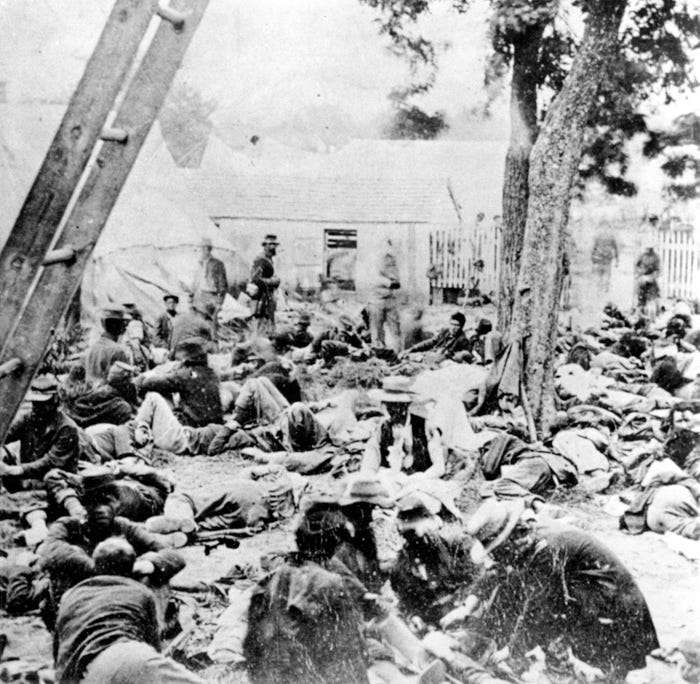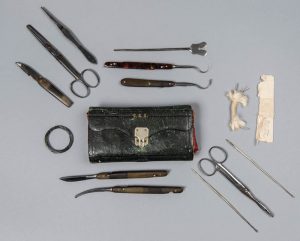Timeline of Her Career
Timeline
The Civil War lasted four years, from 1861-1865, in America between the North and South primarily over the debate on slavery. The Souths desired to keep slavery, and the North wanted to abolish slavery.
Dr. Walker acted primarily as a volunteer surgeon in the Civil War but was later offered a contract as "acting assistant surgeon". For most of her time in the Army she was unpaid although she tried multiple times to recieve compensation for her work.

Wounded soldiers recieve medical attention.
Citation: Business Insider
Timeline
Dr. Walker graduated from medical school. In the Army she was concerned by the number of amputations being performed. When she saw "two surgeons in the ward who had decided to have an arm amputated when there had been only a slight flest wound" she began to communicate with soldiers their right to refuse an amputation. She checked wounds if soldiers were skeptical about a proposed amputation. She stated, "In almost every instance I saw an amputation was not only unnecessary, but to me it seemed wickedly cruel." Dr. Walkers education also made her aware of the bad hygiene in Army hospitals.
April 10th 1964, Dr. Walker was captured by Confederates in Tennessee and was held as a prisoner of war at Castle Thunder. The Confederates arrested her for spying after crossing lines while treating civilians. As a POW, she refused to dress in femenine attire. One Confederate captain said that the camp was "both amused and disgusted... at the sight of a thing that nothing but the debased and depraved Yankee nation could produce... she was dressed in the full uniform of a Federal Surgeon... not good looking and of course had tongue enough for a regiment of men." after seeing Dr. Walker. She remained a POW for four months until she was released in a prisoner exchange.
Dr. Walker respected the families of soldiers who had died. She wrote letters to the families of fallen soldiers, describing the mans condition, injuries, and informing the family of his last moments. She also informed families of soldiers' deaths and wrote that "I can never forget the agonized expression of that womans face. I did her some little favors that were in my power to do; and as she stated, she could not go back to her home as her boy was gone, and that she desired to do what she could for other mothers' sons." after informing a mother of her son's death.

Dr. Walker's medical kit
Citation: National Museum of Civil War Medicine